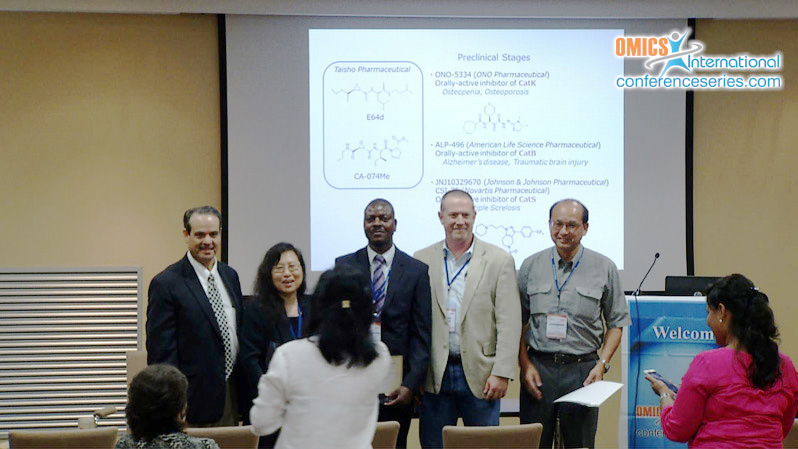
Devorah Heymann
The University of Melbourne, Australia
Title: The association between alcohol use and the progression of Alzheimer’s disease
Biography
Biography: Devorah Heymann
Abstract
Background: Mild-moderate alcohol intake is widely considered to be associated with decreased risk of developing Alzheimer disease (AD), while heavy drinking increases the risk. There is little information about how alcohol affects the cognitive profile among those already diagnosed with AD. Objective: To examine the relationship between alcohol, both the amount and type, and cognitive decline in a cohort of AD patients. Methods: A cohort of 360 patients with early AD in New York, Boston, Baltimore and Paris were followed-up biannually for up to 19.28 years. At each visit, the cognitive profile of the patients was assessed using the modified Mini-Mental State Examination (mMMSE), and patients’ alcohol intake, including beverage type, was reported by patients’ primary caregivers. General estimating equation analysis was used to determine whether baseline alcohol use was associated with the rate of cognitive decline. Findings: Heavy drinkers (8 or more alcoholic drinks/week) had a faster cognitive decline, deteriorating 2.625 more points on their mMMSE score annually compared to abstainers (P≤0.0001), or 3.429 more points compared to mild-moderate drinkers (1-7 alcoholic drinks/week) (P=0.006). There was no significant difference when comparing mild-moderate drinkers to abstainers. Increasing standard drinks of hard liquor, but not beer or wine, was also associated with a faster rate of cognitive decline (β=-0.165 P=≤0.0001). Conclusions: Heavy alcohol consumption and more hard liquor are associated with a faster rate of cognitive decline in AD patients, suggesting that they may hasten progression of AD. Our results suggest that alcohol drinking habits might alter the course of AD.

